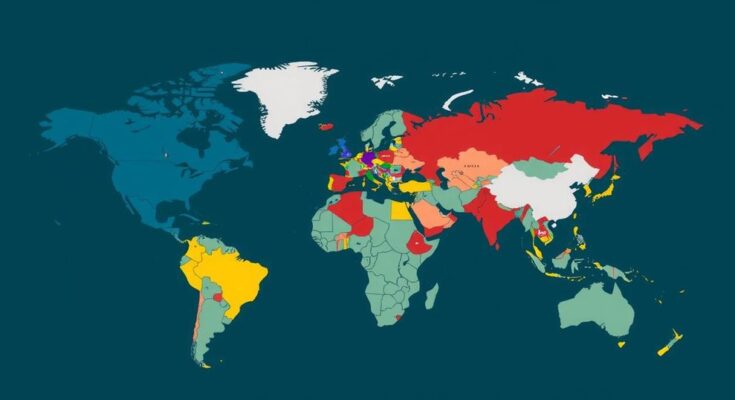The U.S. government will not renew its humanitarian parole program for Venezuelans, Haitians, Cubans, and Nicaraguans, leaving hundreds of thousands facing potential deportation. The program, introduced to provide legal pathways to refugees amid worsening conditions in their home countries, is now a focal point of political and humanitarian discussions. Many affected individuals have limited avenues to remain in the U.S., raising concerns about unsafe re-entry methods as the expiration of their permits nears.
The U.S. government has announced that it will not renew the humanitarian parole program established during the Biden administration, which has permitted many Venezuelans, Haitians, Cubans, and Nicaraguans to reside in the country temporarily over the past two years. This decision signifies that the approximately 500,000 individuals who availed themselves of the program may face deportation upon reaching the end of their authorized stay unless they secure alternative immigration avenues such as Temporary Protected Status (TPS) or asylum. Initially implemented in October 2022 for Venezuelans and expanded in January 2023 to include Cubans, Haitians, and Nicaraguans, the program facilitated entry into the U.S. under certain conditions, including health and background checks and having a financial sponsor. With the expiration of the first authorizations approaching, particularly for Venezuelans this month, many are left seeking more permanent residency solutions. The recent shift in policy resonates notably during an election cycle where immigration issues are paramount, and the Biden administration has faced criticism for its handling of border control from political opponents, including former President Donald Trump. Despite the successful intent of the parole program to curb illegal border crossings, as reported by government officials who noted a 99% reduction in encounters with migrants from these nations, the decision has met significant backlash from community leaders and advocates. They argue that ending the program aggravates the precarious situations many Venezuelans and others face in their home countries, particularly as conditions continue to deteriorate in Venezuela and Nicaragua. Furthermore, advocates emphasize that without a viable legal route, many may resort to dangerous methods to enter the U.S. The Homeland Security Department has acknowledged that individuals who do not obtain other immigration benefits within their parole period would need to leave the country. The Department’s spokesperson reiterated that the two-year parole was intended to provide individuals with a chance to seek humanitarian relief and potentially transitional support in the U.S. This decision has raised questions about the future of many individuals who relied on this program, amplifying anxieties in affected communities.
The humanitarian parole program was initiated by the Biden administration as a response to increasing numbers of migrants from Venezuela, Haiti, Cuba, and Nicaragua seeking refuge in the United States. Intended as a temporary measure, the program allowed individuals to enter the U.S. legally while they explored more permanent immigration options. This policy operated in tandem with a broader strategy aimed at reducing undocumented immigration and managing border security, amidst rising political discourse surrounding immigration policies and border controls. Ongoing political tensions and human rights issues in these countries have created urgent needs for safe passage, making the decision to terminate the program particularly contentious.
The decision not to renew the humanitarian parole program significantly affects the future of many migrants from Venezuela, Haiti, Cuba, and Nicaragua who are facing uncertainty surrounding their legal status in the U.S. As the expiration of their permits approaches, these individuals must navigate a complex immigration landscape to secure residency. Advocates express concerns about potential increases in dangerous migration attempts as a result of a lack of legal options, reflecting broader socio-political issues that persist in their home countries. The ramifications of this policy shift will likely influence public discourse regarding immigration as the 2024 election approaches.
Original Source: www.miamiherald.com




